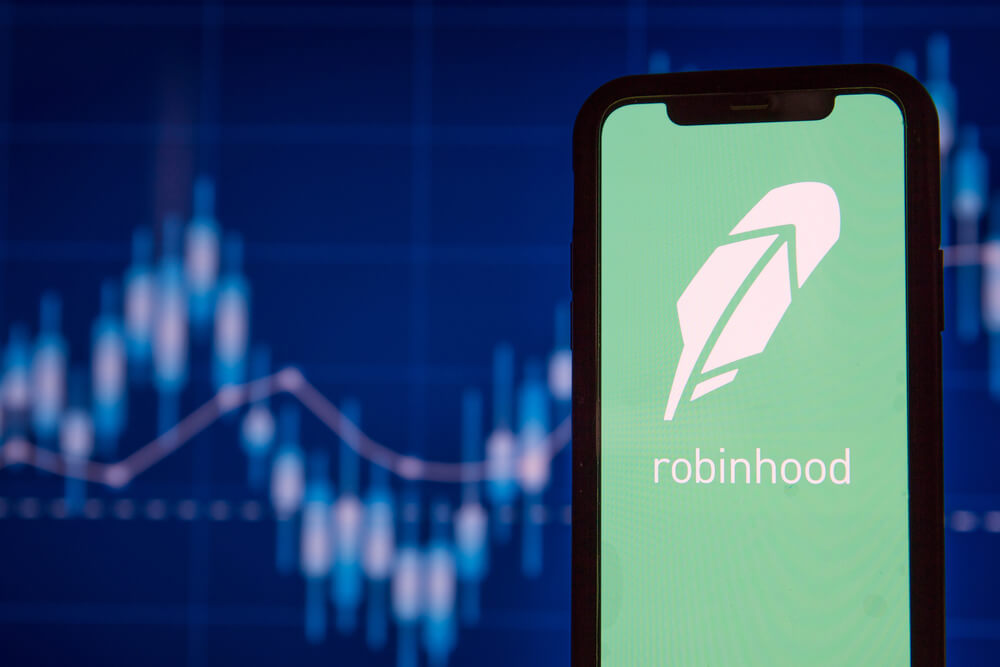
What Is Robinhood Investing?
Have you recently found yourself wondering what is Robinhood investing? Well, you wouldn’t be alone. This upstart investing platform has gained millions of users and a lot of media scrutiny recently, leading to increased curiosity about it.
Robinhood is an investing platform operating in the financial tech space with commission-free trading. Its success story is linked to mainly targeting the younger generations of investors.
In this article, we’re going to have a look at what is Robinhood investing, how you can use it to make money, as well as how online payday loans can come in handy when you urgently need cash.
The Robinhood Investment Platform
What is Robinhood investing? Here's a little about its history.
When Robinhood was just starting up, its zero-commission trading was a novel concept. Now, however, many brokers have moved toward free or very cheap trading. So, Robinhood has had to work harder to stand out.
It had some ups and downs, but overall, it's been a huge success with younger generations who are interested in getting started with investing.
We’re going to look at a few of Robinhood’s main features: account minimums, stock trading costs, options trading costs, account fees, tradable securities, commission-free ETFs, its trading platform, as well as its mobile app.
Account Minimums
When it comes to account minimums, Robinhood stays true to its name (i.e. Robin Hood, the legendary figure who stole from the rich to give to the poor).
You don’t need any minimum balance to get started with Robinhood, at least with basic trading. You’ll need at least $2,000 for margin accounts, which is regulated by the financial industry.
Stock Trading Costs
You’ll have unlimited access to trading stocks without needing to worry about commissions and fees.
Plus, you can buy fractional shares, meaning you don’t need to have the capital to buy an entire share of a company. With Robinhood, all you need is a minimum of $1.
Options Trading Costs
A lot of brokers require $1 or less for each options contract opened, and others have a tiered fee structure in place that means more active traders don’t pay as much as less frequent traders. This, however, isn’t the case with Robinhood.
Robinhood stands out with its options trading because it’s also commission-free and there are no fees per contract either.

Account Fees
With Robinhood, you don’t have to worry about annual fees or fees for account inactivity. There are no ACH transfer fees either.
The main account fees are an account transfer fee that will set you back $75 only if you do transfer your account to another broker. You can also opt for their premium account, Robinhood Gold, which will only cost you $5 each month.
Tradable Securities
Robinhood offers a range of tradable securities, including stocks, ETFs, and cryptocurrencies.
It should be noted that they don’t allow short selling and there are no OTC securities (sometimes referred to as “penny stocks.”). There are also no mutual funds or futures contracts.
Commission-Free ETFs
ETFs are more popular than ever, and Robinhood has many available. A big plus is that these can also be purchased as fractional shares.
Mobile App
Robinhood’s app is quite similar to their website and is well-rated by the user base. In addition to the no-cost trading, Robinhood is well known for, the mobile app has notifications that you can customize, news, and charts.
The Robinhood Trading Platform
So, in essence, what is Robinhood investing?
Overall, it's a great platform for beginning investors and people on a budget, but it lacks many of the resources and technologies offered by other standard brokers.
For example, there are very limited options for performing research on stocks and ETFs, no investment-related calculators, and no portfolio management offered.
If you have Robinhood Gold, you can get access to Morningstar research and some NASDAQ research tools.
With Robinhood, portfolio analysis is also disappointing as you can see little besides your gains, losses, and overall portfolio value.
You should also be aware that Robinhood’s customer service is poorly rated by both third-party reviewers and their customer reviews. You can’t call anyone for help, but you can enter your own phone number to receive a call.
But If You Need Money Urgently…
Investing with Robinhood is a great way to build your net worth over time, assuming you make good investments.
However, sometimes you might need help with emergency expenses but don’t want to sell off your investments or you are just tight on cash. That’s when we at Carolina Payday loans, Inc. like to help. you can get an online payday loan easily and quickly through a streamlined process.
An online payday loan can be perfect for any unexpected expenses that might come your way. Through a quick process, you can get approved for up to $550.

How to Get An Online Payday Loan?
The steps for getting an online payday loan through Carolina Payday Loans, Inc. are simple:
- Get the required items (your ID/driver’s license, proof of income, a blank check from your active checking account).
- Fill out and submit the online form on Carolina Payday Loans, Inc.
- Answer your phone when the loan representative from your chosen location calls you with further instructions.
- Take the required items to the meeting the loan representative schedules during your initial phone call.
- Let them assess everything to determine the specifics of your loan.
- Complete the paperwork and you can get your money the very same day.
Know Your Options, Control Your Finances
If you wondered what is Robinhood investing, we hope you found your answer. In essence, Robinhood is a no-cost investment broker.
If you want to start investing, Robinhood makes it accessible for anyone with free trading and fractional shares. Investing your money can help you build a better future, but if you happen to need money quickly, an online payday loan can be an option to consider.
Submit an online payday loan form today to check your eligibility with Carolina Payday loans, Inc.
Note: The content provided in this article is only for informational purposes, and you should contact your financial advisor about your specific financial situation.